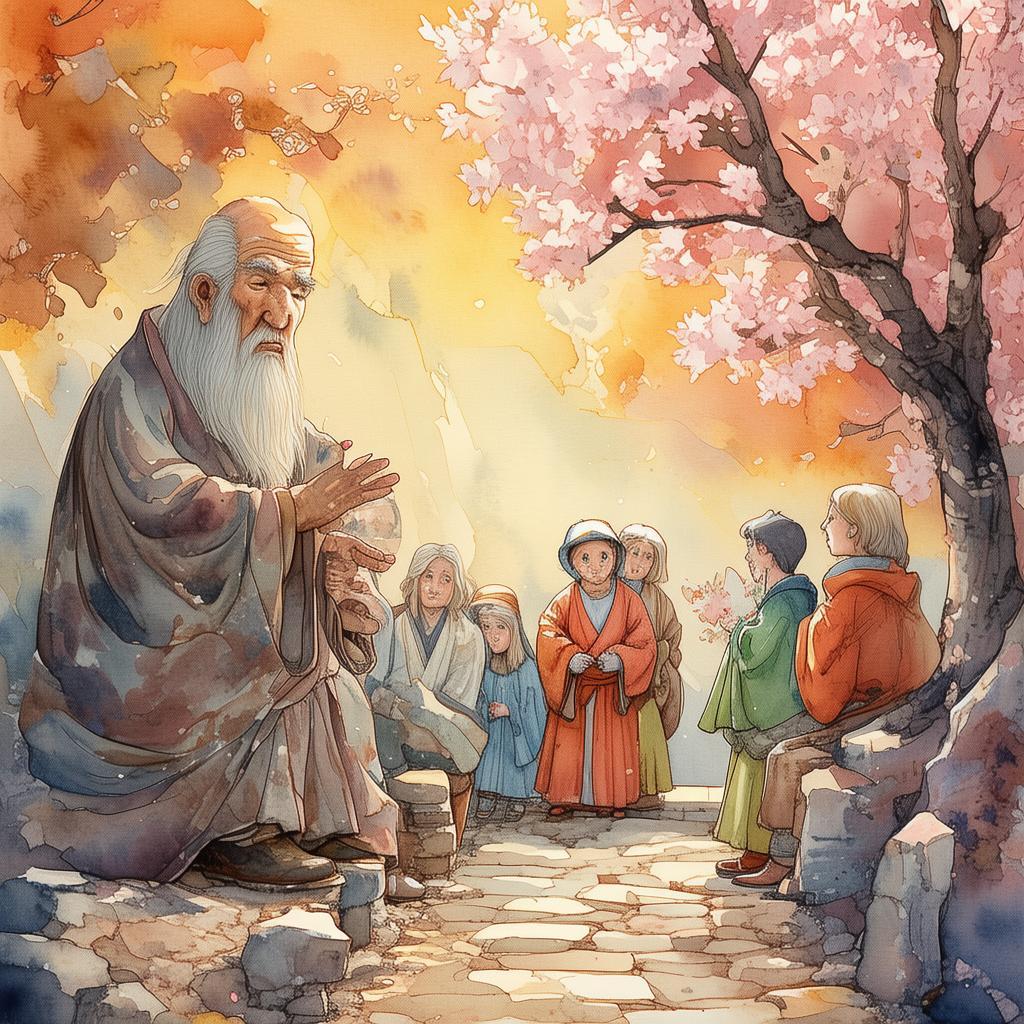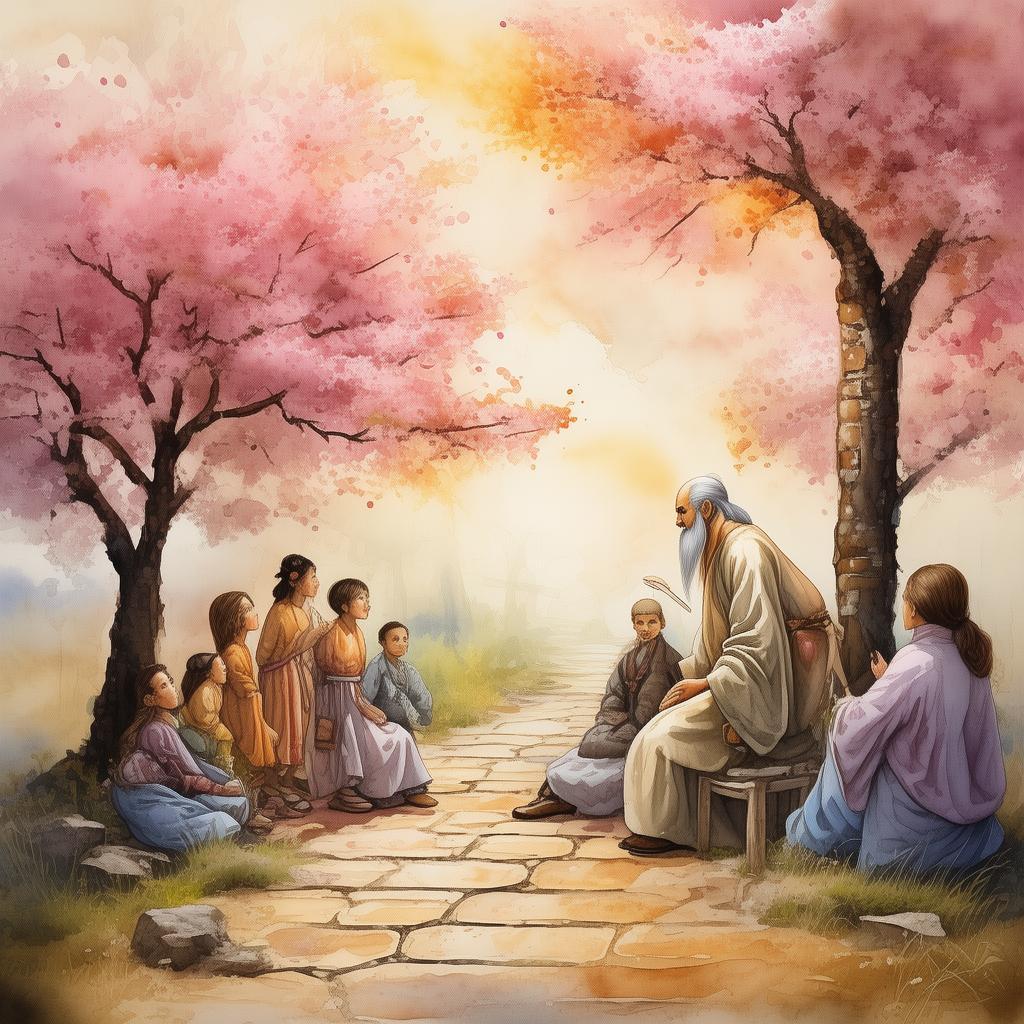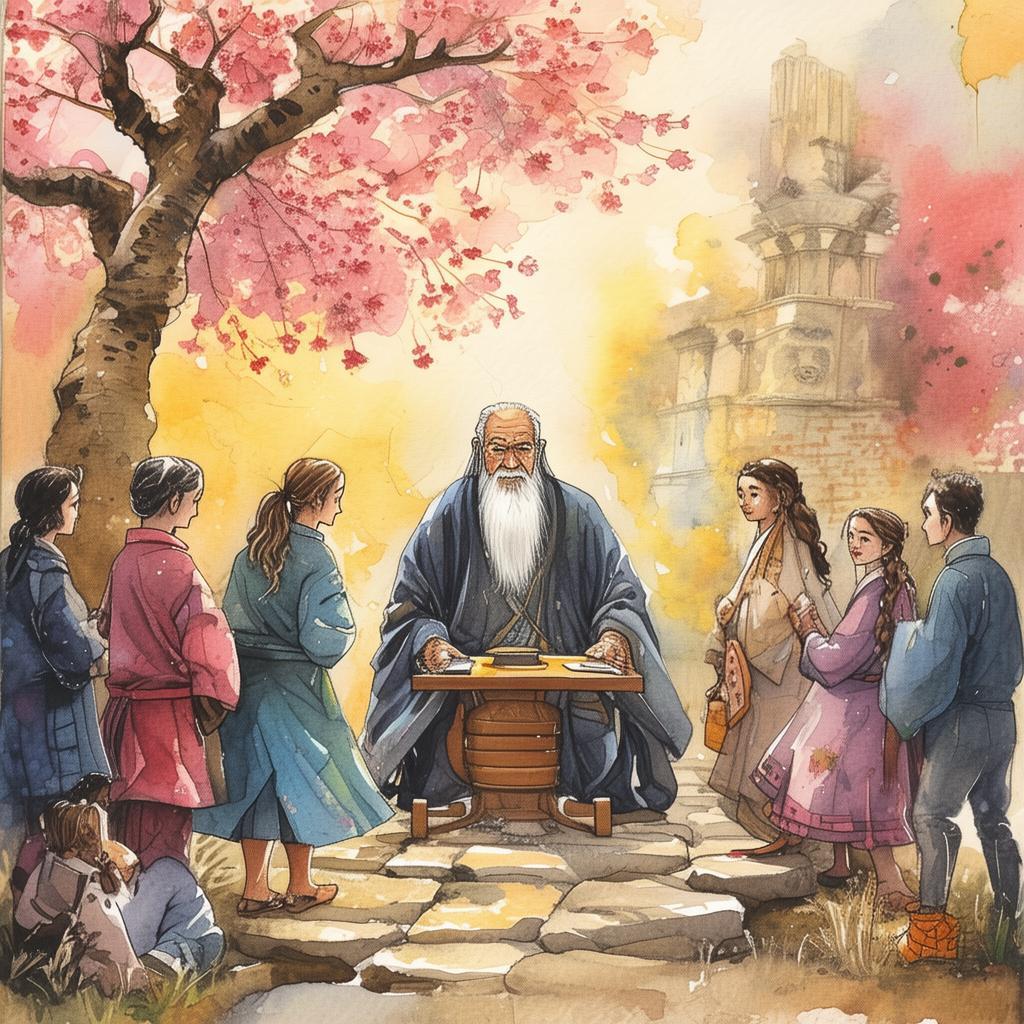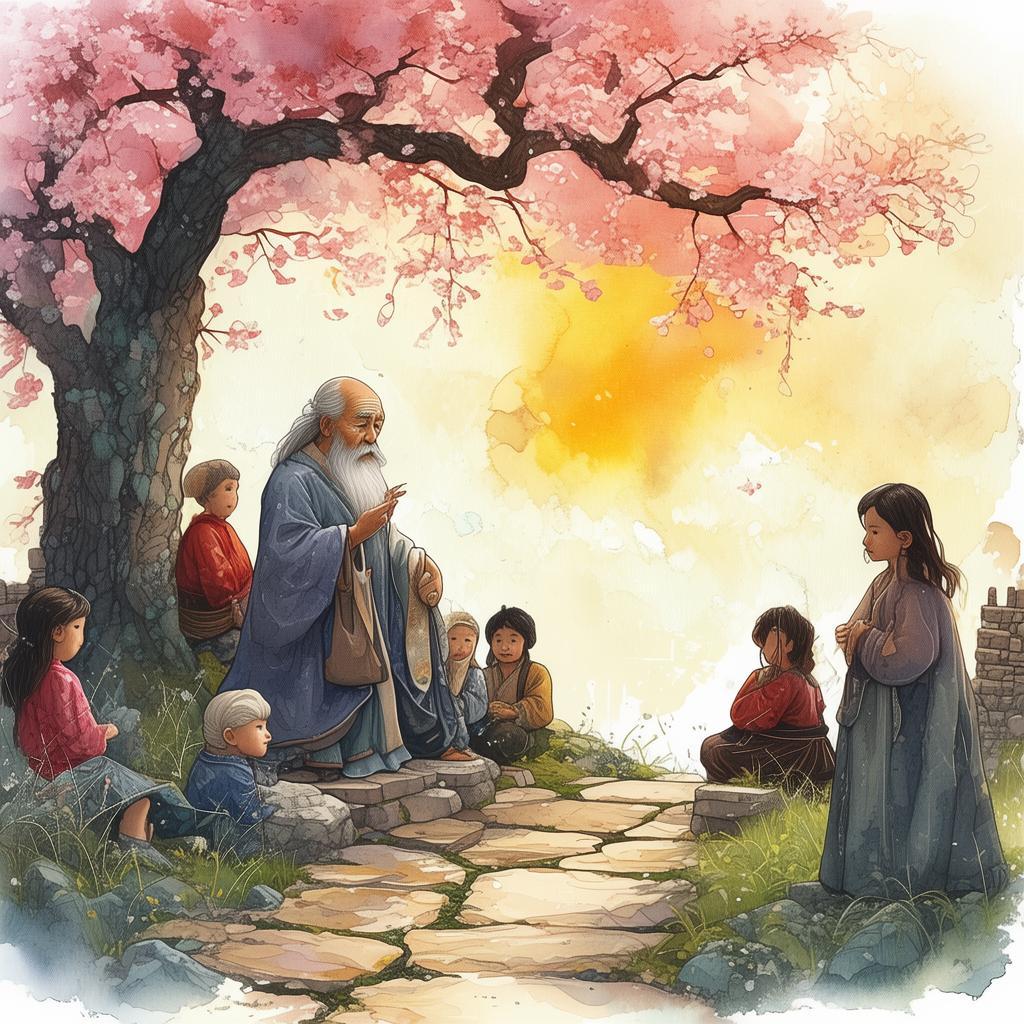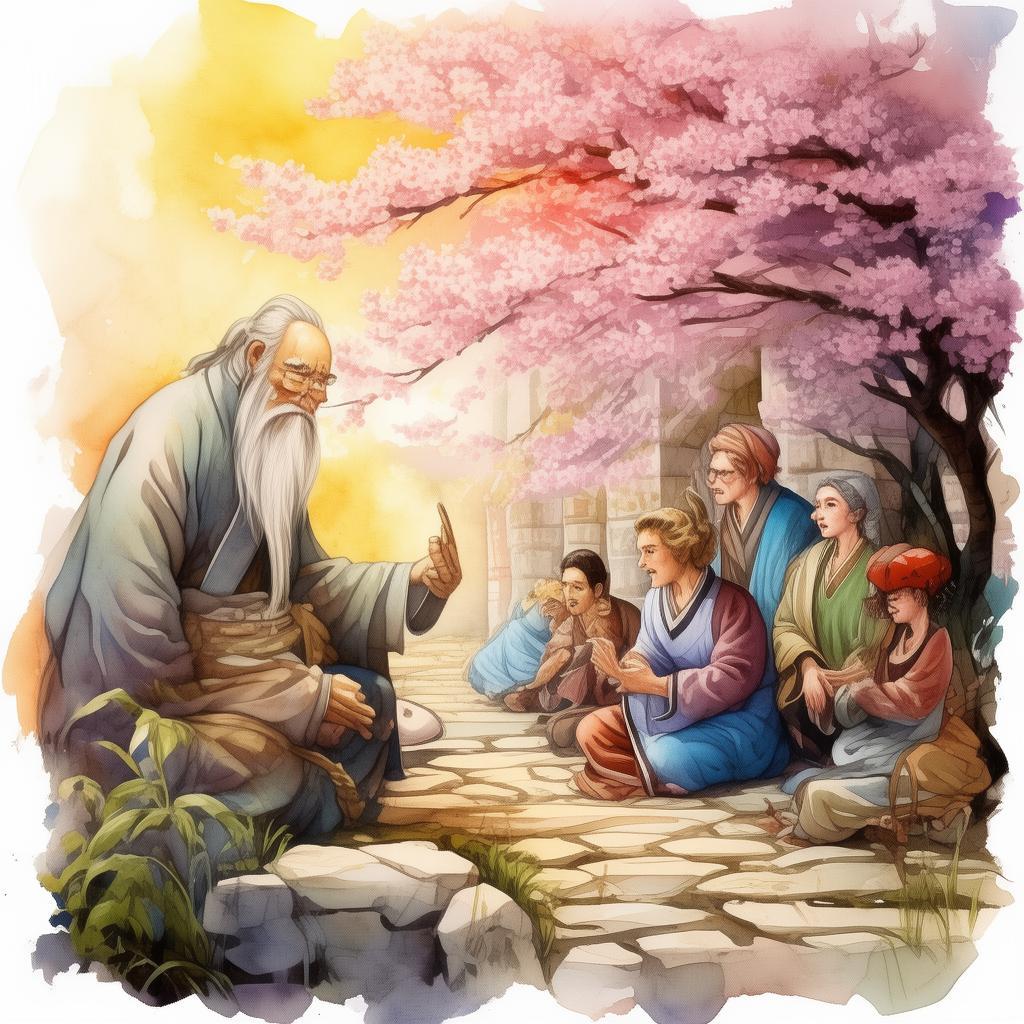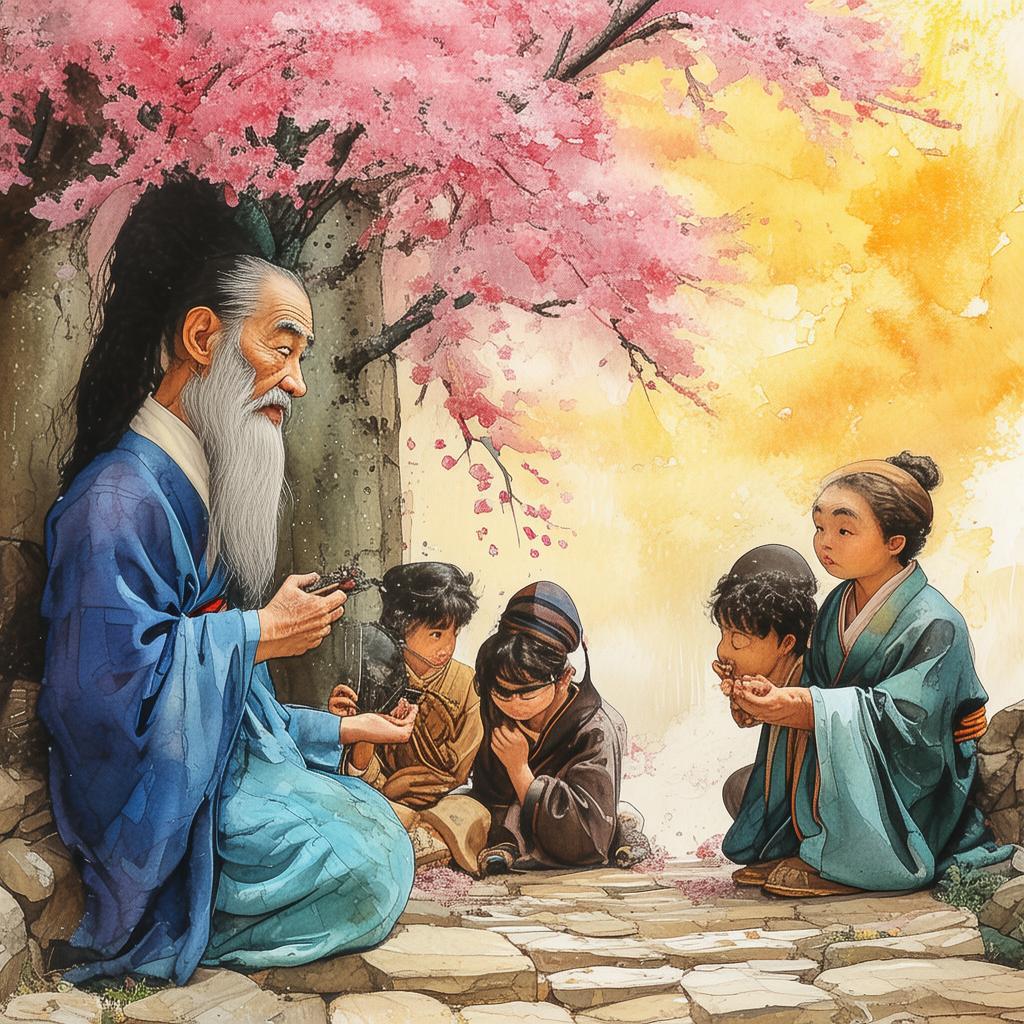The Quest for the Soul's Brush: The Creation of "Fence Sitting"
In the heart of ancient China, there lived a man known as The Man Who Wrote the Soul Idioms as his Spiritual Brush. His name was Li, and he was a master scribe, a wordsmith whose pen was as powerful as a sword. Li believed that the soul of a person could be captured and preserved in the ink of his words, and he spent his life crafting idioms that would resonate with the essence of the human spirit.
One day, Li found himself at the edge of a vast, desolate plain. The sky was a deep, unyielding blue, and the wind howled through the empty landscape, carrying with it the echoes of ancient battles and forgotten stories. Li felt a strange pull, as if the very earth was calling out to him. He followed the wind, his heart heavy with the weight of his own purpose.
As he wandered, Li came upon a small, weathered cottage. The door creaked open as he approached, revealing an old woman with eyes that seemed to pierce through time itself. She welcomed him warmly, offering him tea and stories of a bygone era. Li listened intently, his mind racing with the thoughts of his own journey.

The old woman spoke of a time when the world was divided by two powerful forces, each with their own beliefs and values. The people were caught in the middle, unsure of which side to support, and this indecision became a problem. "In those days," she said, "we called it 'fence sitting.' It meant to be on the fence, to avoid taking a side, to wait and see what would happen."
Li's heart leapt. He had never heard of this idiom before, and it struck a chord within him. He realized that the idiom "fence sitting" was a perfect reflection of the human condition, a universal truth that transcended time and place. It was a story of indecision, of fear, and of the struggle to find one's own path.
The old woman saw the spark in Li's eyes and smiled. "You must write this idiom," she said. "It will be a guide for those who seek the truth within themselves."
Li returned to his village, his heart full of purpose. He began to write, his pen moving with a newfound vigor. He crafted the idiom "fence sitting" with such care that it seemed to take on a life of its own. The villagers gathered around, their eyes wide with curiosity as Li read the words aloud.
"The idiom 'fence sitting' teaches us that indecision can be a form of cowardice," Li declared. "It is better to stand on one side of the fence, even if it is the wrong one, than to remain in the middle, where you are neither here nor there."
The villagers listened, their thoughts churning with the old woman's words. They realized that the idiom was not just a lesson in decision-making, but a reflection of the human struggle to find meaning and purpose in a world that was often chaotic and uncertain.
As time passed, the idiom "fence sitting" spread throughout the land. It became a part of the collective consciousness, a reminder that standing on the fence was not a safe place to be. It was a call to action, a challenge to make a choice, to take a stand, and to live with the consequences.
Li continued his journey, his spirit renewed by the creation of the idiom. He realized that his pen was not just a tool for writing, but a brush with which he could paint the soul of the world. And as he wrote, he knew that the idioms he created would live on long after his own life had ended.
The story of Li and the creation of the idiom "fence sitting" became a legend, a tale of one man's quest to capture the essence of the human spirit in a single word. It was a story that would be told for generations, a reminder that even in the face of uncertainty, one could find the strength to choose, to stand, and to live.
✨ Original Statement ✨
All articles published on this website (including but not limited to text, images, videos, and other content) are original or authorized for reposting and are protected by relevant laws. Without the explicit written permission of this website, no individual or organization may copy, modify, repost, or use the content for commercial purposes.
If you need to quote or cooperate, please contact this site for authorization. We reserve the right to pursue legal responsibility for any unauthorized use.
Hereby declared.




